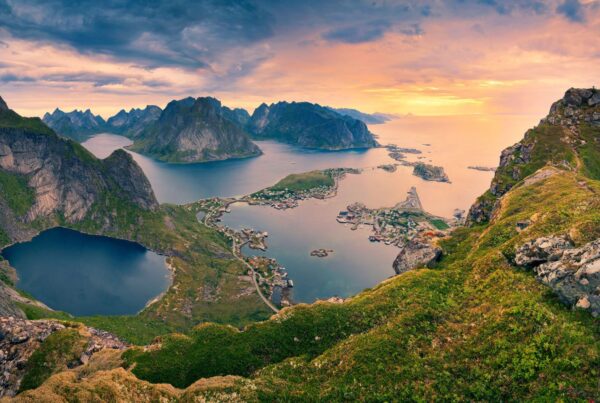The concept of sustainable travel has never been more crucial.
With environmental concerns at the forefront of global discussions, the travel industry finds itself at a pivotal moment, grappling with the urgent need to minimise its ecological footprint while still offering enriching experiences for travellers.
As the buzz around sustainable travel continues to grow, however, seeking guidance from those at the forefront of the movement is essential.
That’s why we’ve gone straight to the experts, tapping into the wisdom and expertise of industry leaders, climate action champions, and destination managers.
Through their insights, we aim to shed light on the significance of sustainable travel and explore practical strategies for achieving it.
We spoke about three crucial points with our three speakers:
- Decarbonising hotels: Understanding the importance of measuring carbon footprints and taking steps towards decarbonisation in hotel operations.
- Managing overtourism: Addressing the challenges of overtourism by collecting data to understand specific concerns of both tourists and local communities, and implementing strategic measures for destination management.
- Promoting sustainable practices: Emphasising the significance of generating awareness among staff and clients, attracting the right clientele who appreciate sustainability efforts, and supporting climate projects such as mangrove restoration, reforestation, and renewable energy initiatives.
Measuring, planning, acting: How to make a hotel climate-friendly
Paloma Zapata is the CEO of Sustainable Travel International, a company dedicated to promoting responsible tourism to protect and preserve the planet.
In this brief intervention, Paloma outlines the main steps to take action against climate change and reduce carbon emissions practically within one’s own tourism establishment.
Measuring: Understanding the carbon footprint of the establishment or group is an essential step in determining how to act. Based on the level of impact of the establishment, it will be possible to plan which corrective actions to implement.
Developing a decarbonisation plan: This is not a single action but a long-term journey. For this reason, it is essential to have a clear and defined vision of the objectives, share this vision, and plan a process divided into small steps to move in the right direction.
Engaging employees: First and foremost, it is crucial to train and involve your staff, as they are the ones who work on the front lines and will be responsible for implementing the management’s choices.
Engaging and educating customers: Sending out a specific message will attract the right customers and educate them so that sustainable best practices become an integral part of their lives and so they spread a message that will support the property’s marketing efforts.
The value of data in addressing overtourism
Tourist overcrowding, which negatively impacts both the ecosystem and the lives of destination residents, is one of the most concerning global trends.
The phenomenon of ‘revenge travel’ stemming from the 2020 lockdown and the strong inclination to travel, especially among younger generations, have put many tourist destinations at risk of overtourism.
Professor Harold Goodwin, an expert in sustainable tourism and managing director of Responsible Tourism Partnership, explains why overtourism is a complex and diverse phenomenon, and why data is an essential source of information to understand its origins and find effective solutions.
Respect the City: How Dubrovnik made tourism more sustainable
Jelka Tepšić, Deputy Mayor of the City of Dubrovnik, unveils the behind-the-scenes of the city’s major tourism project, “Respect the City“.
Until a few years ago, tourists tended to avoid the Croatian city due to overcrowding. Therefore, the government chose to intervene with a comprehensive program to restore healthy and valuable tourism.
Respect the City (RTC) is a multidisciplinary project for strategic destination management with an action plan. It consists of a set of short, medium, and long-term measures and activities aimed at making Dubrovnik a leader in sustainable and responsible tourism in the Mediterranean.
Tepšić explains that they have taken action in various aspects to achieve their goal:
- Cruises: The city has built collaboration and dialogue with cruise companies to manage this type of tourism more effectively and reduce the tourism pressure of this kind.
- Stakeholder engagement: Dubrovnik’s approach to addressing overtourism involves actively engaging stakeholders, including cruise lines, local residents, and tourism associations, fostering collaboration and communication to develop effective solutions.
- Putting citizens at the centre: As Dubrovnik’s goal remains to make its citizens happy.
From measuring carbon footprints to fostering stakeholder engagement and citizen-centric approaches, these discussions highlight the importance of collaborative efforts in addressing challenges like overtourism and decarbonising hotels.
By implementing these strategies and supporting initiatives for environmental conservation, we can pave the way for a more sustainable future in the tourism industry worldwide.

How sustainable is your tourism destination?
Explore the sustainability and various dimensions of your tourism destination, including its environmental impact, economic resilience, societal well-being, and governance effectiveness.
Learn more about our Destination Sustainability Index.





